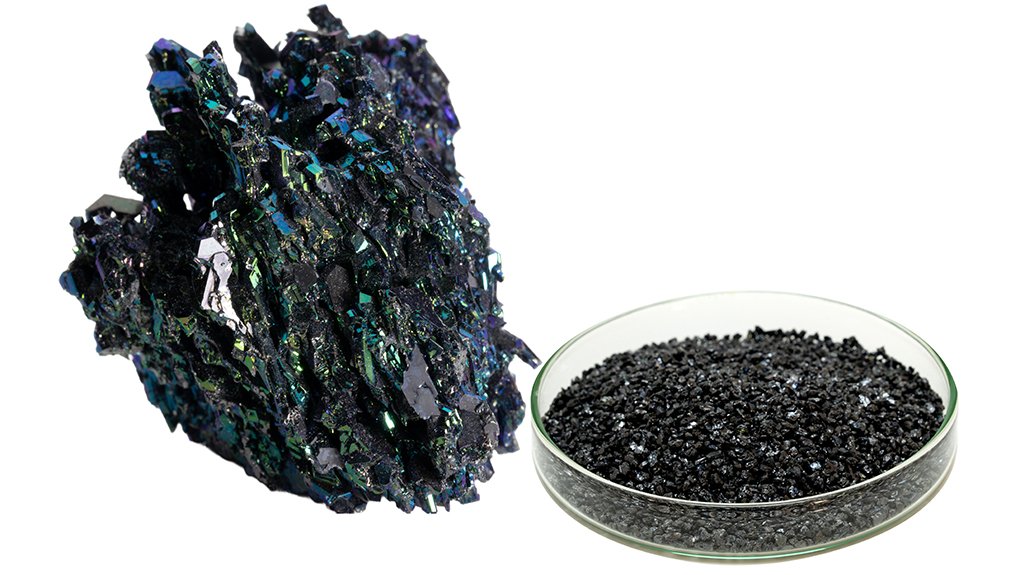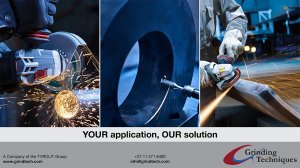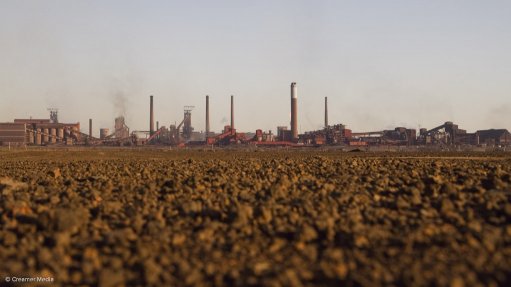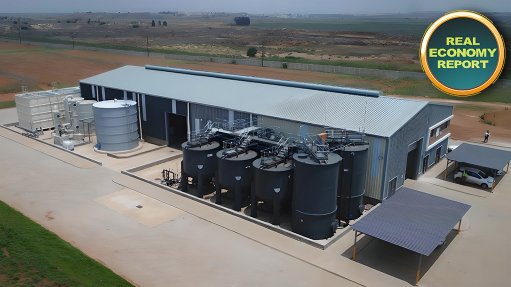A guide to minerals: a key component in abrasives
Abrasives are used in various cutting, grinding and polishing applications, and usually form part of a process to produce some kind of finished product. At Grinding Techniques choosing the correct mineral is essential in producing premium quality abrasives. For centuries, minerals have been an essential part of the industrial world, available in many forms, including grains, powders and bars.
Popular minerals used include aluminium oxide, silicon carbide, zirconia alumina and ceramic, with aluminium oxide as the most commonly used abrasive mineral. Its composition is hard and durable making it suitable for grinding and cutting applications of many materials, including steel, ceramics and various other materials.
For ferrous metals like stainless steels and other high temperature alloys, a synthetic mineral — zirconia alumina — is more suited. Zirconia alumina carries self-sharpening properties, making it an excellent choice for abrasives that need to produce high and fast stock removal on application.
A synthetic mineral with a hardness similar to aluminium oxide but with a much better heat resistance is ceramic alumina, one of the latest innovations in grain technology. Due to its fast cutting rate and self-sharpening properties, it is known as one of the premium minerals, making it ideal for applications on heat sensitive metals, hard metals and alloys. Abrasives manufactured with Ceramic grain will deliver the ultimate in performance, with an aggressive, consistent cut under moderate to high pressure that provides extremely consistent stock removal.
This high-performing grain features very small fracture planes which allow each grain to constantly re-sharpen as is wears away, providing fast cutting action throughout its usable life. It provides the best in longevity and produces the highest cut rate of all when it comes to abrasives.
Ceramic grain is known as a manufactured or artificial abrasive mineral whereas emery and garnet are examples of natural abrasives that are found in nature. Artificial abrasives are produced scientifically through various processes, creating a new technologically advanced mineral with specific qualities, which natural minerals do not have.
A chemical procedure of creating a colloidal solution, referred to as sol, is used. This solution contains tiny particles of aluminium oxide in a liquid medium. For easy reference one can think of caramelised sugar. In its natural form sugar has fine granules, but once mixed with water it becomes a liquid-like structure that still contains all the tiny granules.
Ceramic Alumina is a result of the sol-gel process which is created by particles of aluminium oxide in the sol mixture. The mixture is then dried under controlled temperatures resulting in the mineral releasing from the bonding agent.
The final step in creating ceramic abrasive grain is the sintering process. Heat treatment causes the powdered grains to shrink making them stronger and denser.
Ceramic grain is a friable abrasive, which allows it to fracture continuously when exposed to heat and pressure in the grinding process, continuously exposing new and sharp cutting edges throughout its lifetime. This ensures that a very consistent metal removal rate and surface finish is achieved over longer periods.
Should a cutting or grinding application involve exotic materials, such as superalloys or stainless steel, Grinding Techniques’ range of ceramic abrasives is sure to outperform most other abrasive minerals. Due to its self-sharpening ability and severe toughness, ceramic grains will not dull as quickly as other conventional grains, and due to the fast cutting action of ceramic grains, the material removed is far superior to any other conventional abrasive grain in the same amount of time.
Other minerals used in the manufacturing of abrasives, include silicon carbide, a hard and brittle mineral particularly suited to applications on non-ferrous metals. Known as the hardest natural mineral, and available in various forms, diamond is used for cutting and grinding applications on very hard materials such as glass and ceramics.
Similar in hardness to diamond, is cubic boron nitride, a synthetic mineral used in abrasives for applications on hard materials like steel and ceramics. It is very popular for applications in the automotive, aerospace and metalworking industries.
Whatever abrasive is manufactured, the choice of abrasive mineral always depends on the workpiece material, the desired finish and the specific application.
As technology advances, Grinding Techniques utilises the latest in mineral and abrasive formulations specifically developed to meet the changing needs of industries.
At the cutting edge of technology, Grinding Techniques only use the best in raw materials, when manufacturing abrasives. Numerous parameters have been defined with a view to enhance production and is substantiated by quality insurance measures after every manufacturing step for each product. All our products are manufactured in accordance with ISO standards, and we continually strive to consistently meet and exceed maximum standards to ensure compliance with strict customer requirements.
For a custom solution to your application, contact one of our application specialists.
+27 11 271 6400| info@grindtech.com | www.grindtech.com
Comments
Announcements
What's On
Subscribe to improve your user experience...
Option 1 (equivalent of R125 a month):
Receive a weekly copy of Creamer Media's Engineering News & Mining Weekly magazine
(print copy for those in South Africa and e-magazine for those outside of South Africa)
Receive daily email newsletters
Access to full search results
Access archive of magazine back copies
Access to Projects in Progress
Access to ONE Research Report of your choice in PDF format
Option 2 (equivalent of R375 a month):
All benefits from Option 1
PLUS
Access to Creamer Media's Research Channel Africa for ALL Research Reports, in PDF format, on various industrial and mining sectors
including Electricity; Water; Energy Transition; Hydrogen; Roads, Rail and Ports; Coal; Gold; Platinum; Battery Metals; etc.
Already a subscriber?
Forgotten your password?
Receive weekly copy of Creamer Media's Engineering News & Mining Weekly magazine (print copy for those in South Africa and e-magazine for those outside of South Africa)
➕
Recieve daily email newsletters
➕
Access to full search results
➕
Access archive of magazine back copies
➕
Access to Projects in Progress
➕
Access to ONE Research Report of your choice in PDF format
RESEARCH CHANNEL AFRICA
R4500 (equivalent of R375 a month)
SUBSCRIBEAll benefits from Option 1
➕
Access to Creamer Media's Research Channel Africa for ALL Research Reports on various industrial and mining sectors, in PDF format, including on:
Electricity
➕
Water
➕
Energy Transition
➕
Hydrogen
➕
Roads, Rail and Ports
➕
Coal
➕
Gold
➕
Platinum
➕
Battery Metals
➕
etc.
Receive all benefits from Option 1 or Option 2 delivered to numerous people at your company
➕
Multiple User names and Passwords for simultaneous log-ins
➕
Intranet integration access to all in your organisation




















